Saitama SAITAMA/USD, a token launched at the end-May, has soared an impressive 673% in the past 90 days — eclipsing the negative 32.15% returns of Dogecoin DOGE/USD in the same period.
This wholesome increase in the coin’s value and the fact that I happen to be placed a short train ride away from Saitama — the Japanese prefecture after which the token takes its name — inspired me to make a very unique cryptocurrency pilgrimage this fall.
What is SAITAMA? SAITAMA cryptocurrency's white paper makes mention of a mysterious “ghost dog” said to roam in the mountains of the eponymous region. As per the document, Mitsumine Shrine in Saitama is dedicated to the “wolf-like beast.”
Interestingly, there is a dichotomy in the name of the token — at least as per its white paper. In English, the token is called “The SAITAMA," but, in Japanese, it is referred to as “Saitama Inu.”
See Also: How To Buy Saitama Inu (SAITAMA)
The SAITAMA ecosystem is composed of a “smart” wallet called SaitaMask, a marketplace dubbed SaitaMarket, and the non-fungible token launchpad platform SaitaMaker.
The whitepaper says the token carries out a 2% redistribution and above 2% burn on every transaction.
SAITAMA’s Telegram community channel had 49,174 members at press time, while the official Twitter page had 168,700 followers.
At press time, the token had a self-reported market cap of approximately $2.9 billion. The coin can be purchased, among others, through Uniswap and Poloniex exchanges; bulk of the volume is on the latter.
The Legend Behind SAITAMA: Mitsumine Shrine, the Shinto shrine referenced by the white paper, is approximately one-and-a-half hours from the Seibu Chichibu Station by bus. Since Mitsumine Shrine is also an excellent spot for watching Japan’s fall colors, I decided to kill two birds with one stone.
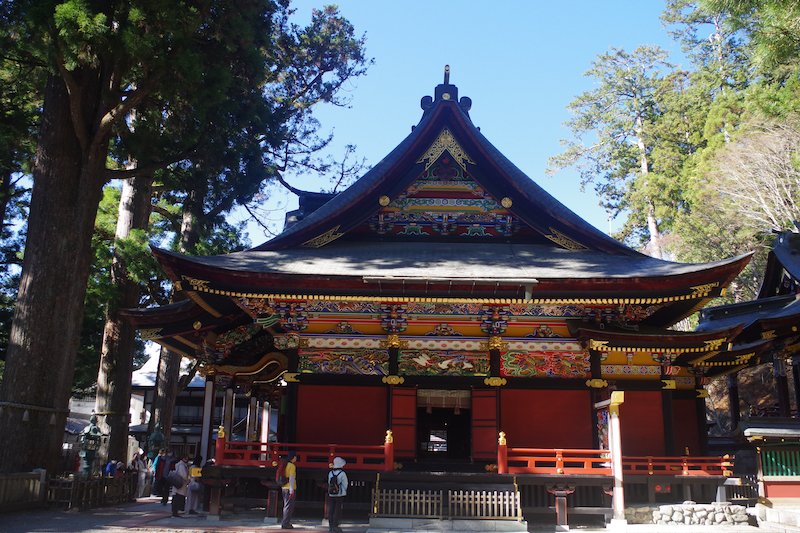 Mitsumine Jinja Main Shrine
Mitsumine Jinja Main Shrine
The shrine was founded by Yamato Takeru, who climbed atop Mount Mitsumine on his way to modern-day Gunma prefecture.
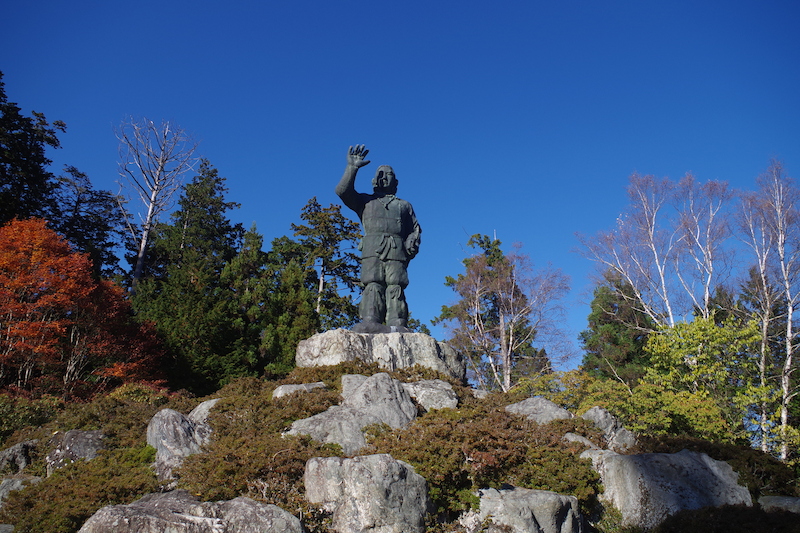
Statue Of Yamato Takeru — The Shrine's Founder
Yamato Takeru, on a mission for his father Emperor Keiko, enshrined the two gods, Izanami-no-mikoto and Izanagi-no-mikoto, at the spot, as per the shrine’s website.
It is said that Yamato Takeru was guided to Mount Mitsumine by a Yamainu or mountain dog — In the olden times, wolves were often referred to as mountain dogs. Legend has it that the guide wolf was referred to with the honorific "O-inu-sama" by people.
See Also: Elon Musk Asks To Be Made New 'Dogecoin CEO' But Gets Snubbed In Favor Of This Good Girl
I visited the shrine when the maple leaves were just reaching their peak and the surrounding mountains were awash with bright colors of fall. This is a time when the shrine receives hundreds of visitors.
The entrance to the shrine has a giant Torii gateway. Two guardian wolves are established here to protect the path leading up to the shrine.
 The Entrance To Mitsumine Shrine Has Guardian Wolves
The Entrance To Mitsumine Shrine Has Guardian Wolves
As you walk down a shady path, you reach an intersection with one path leading up to the main shrine.
The brightly colored shrine has a Torii of its own but this time the gateway is more ornate. Of course, this entrance too has its pair of guardian wolves.
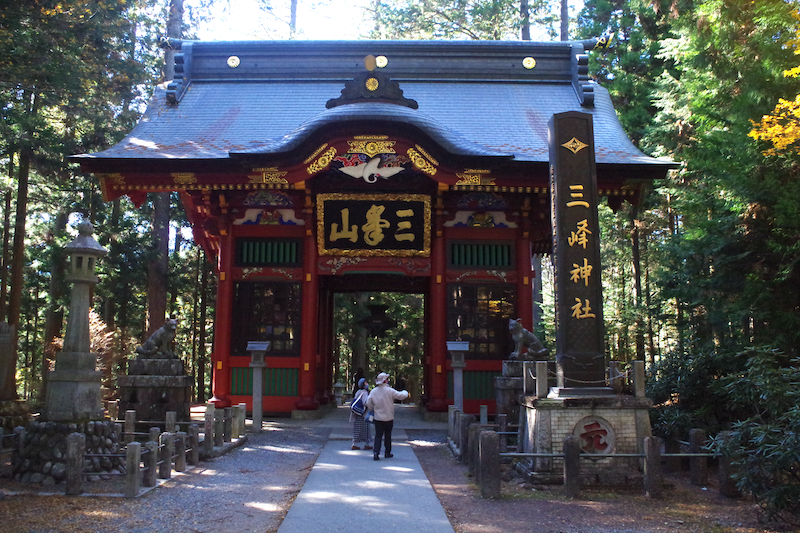 The Gate To The Main Shrine Is More Ornate And Wolves Guarding It As Well
The Gate To The Main Shrine Is More Ornate And Wolves Guarding It As Well
A staircase leads up to the main shrine, where visitors can flip a coin into a box and pray. The method involves bowing twice, clapping your hand twice, and bowing once again to the enshrined gods.
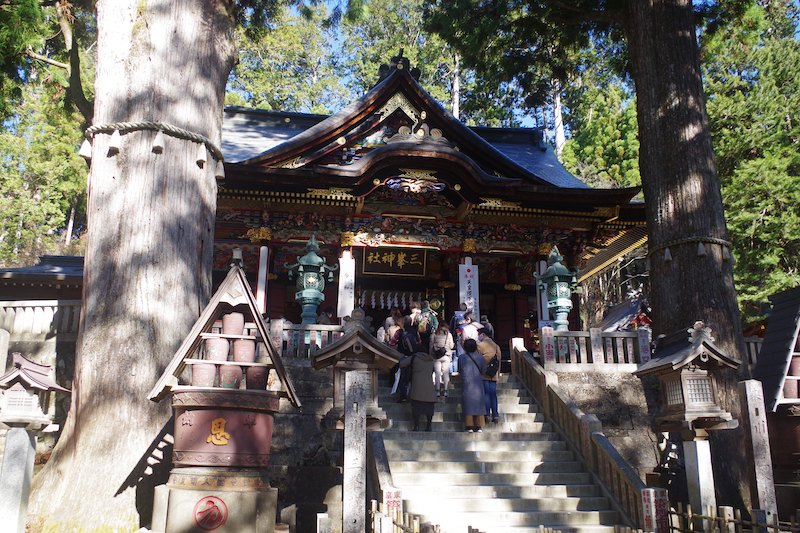 People Waiting To Pray At The Shrine
People Waiting To Pray At The Shrine
The beautiful ornate roof of the building is striking and immediately catches the eye of any visitor.
Near the shrine, it is possible for visitors to purchase protective charms called O-mamori.
 A Statue Of A Guardian Wolf At Mitsumine Shrine
A Statue Of A Guardian Wolf At Mitsumine Shrine
The guardian wolf associated with the Mitsumine Shrine is said to have protective powers against various perils such as fire or theft and thus the charms sold by the shrine are meant to protect against such dangers.
Equally beautiful, although smaller, are some other shrines in the vicinity of the main building.
 There Are Some Smaller Shrines In The Complex As Well
There Are Some Smaller Shrines In The Complex As Well
Another staircase from the intersection leads to a picturesque viewing spot from where the beautiful fall scenery is visible.
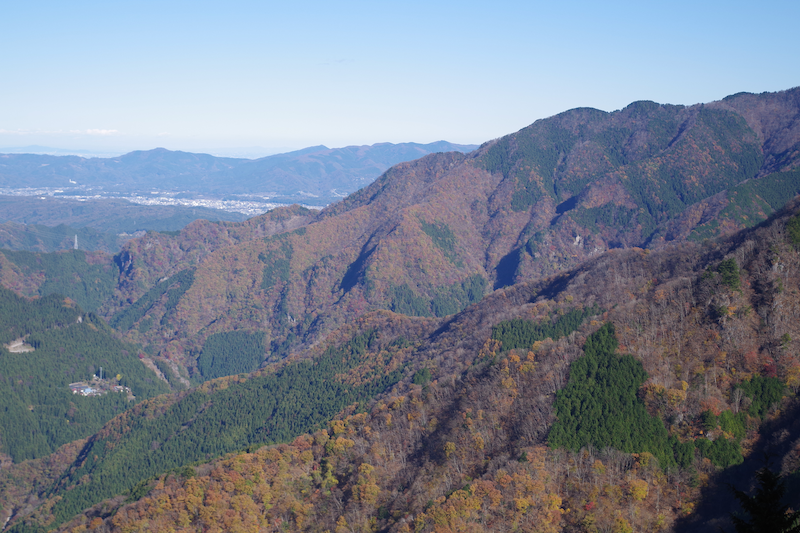 Fall Colors Visible In The Mountains From The Viewing Platform
Fall Colors Visible In The Mountains From The Viewing Platform
The serene viewing platform faces the main complex of the shrine called Okunomiya, which is placed on yet another mountain.
A Feast In Saitama: At the entrance to the passageway are many shops and restaurants that sell souvenirs, snacks and serve delicious food.
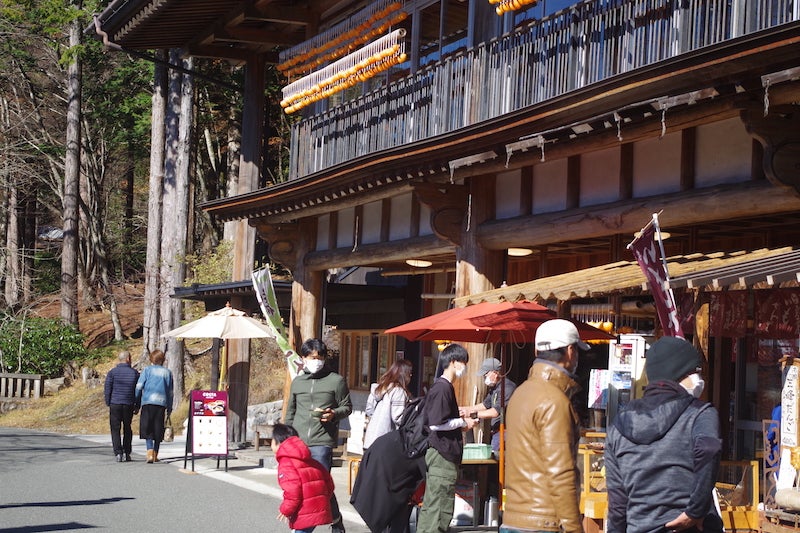 Shops And Restaurants At Mitsumine Shrine With Persimmons Hung To Air Dry
Shops And Restaurants At Mitsumine Shrine With Persimmons Hung To Air Dry
When I visited, persimmons were hanging to dry at one of the restaurants, which also served dumplings called dango, miso oden, which is a dish made of konjac and fermented soybean paste, roasted yamame — a trout-like fish.
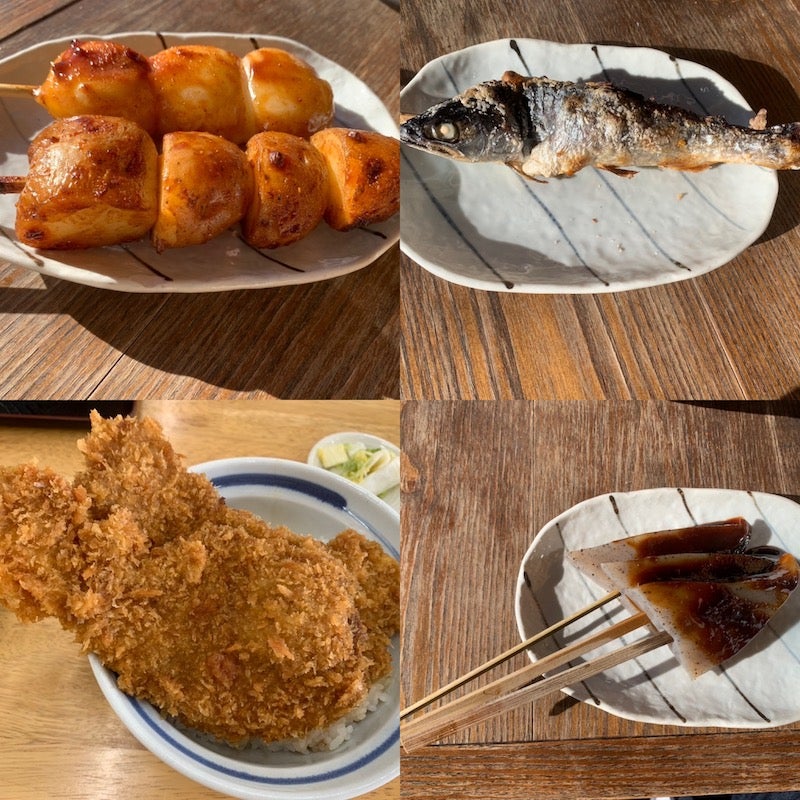 Mitsumine Shrine Restaurants, Shops Sell A Variety Of Dishes
Mitsumine Shrine Restaurants, Shops Sell A Variety Of Dishes
Also on the menu was miso potato, which are potatoes grilled on skewers slathered with rich flavorful soybean paste.
I also ate katsudon, a dish of rice served with pork cutlets called waraji tonkatsu, which were delicious and a specialty of the region.
The only downer is that none of the restaurants or shops seem to accept SAITAMA, but with its growing popularity who is to say that won’t change in the future.
Read Next: Did CoinMarketCap FBI Warning Cause Saitama Inu Coin Price To Crash?
Edge Rankings
Price Trend
© 2025 Benzinga.com. Benzinga does not provide investment advice. All rights reserved.
Trade confidently with insights and alerts from analyst ratings, free reports and breaking news that affects the stocks you care about.